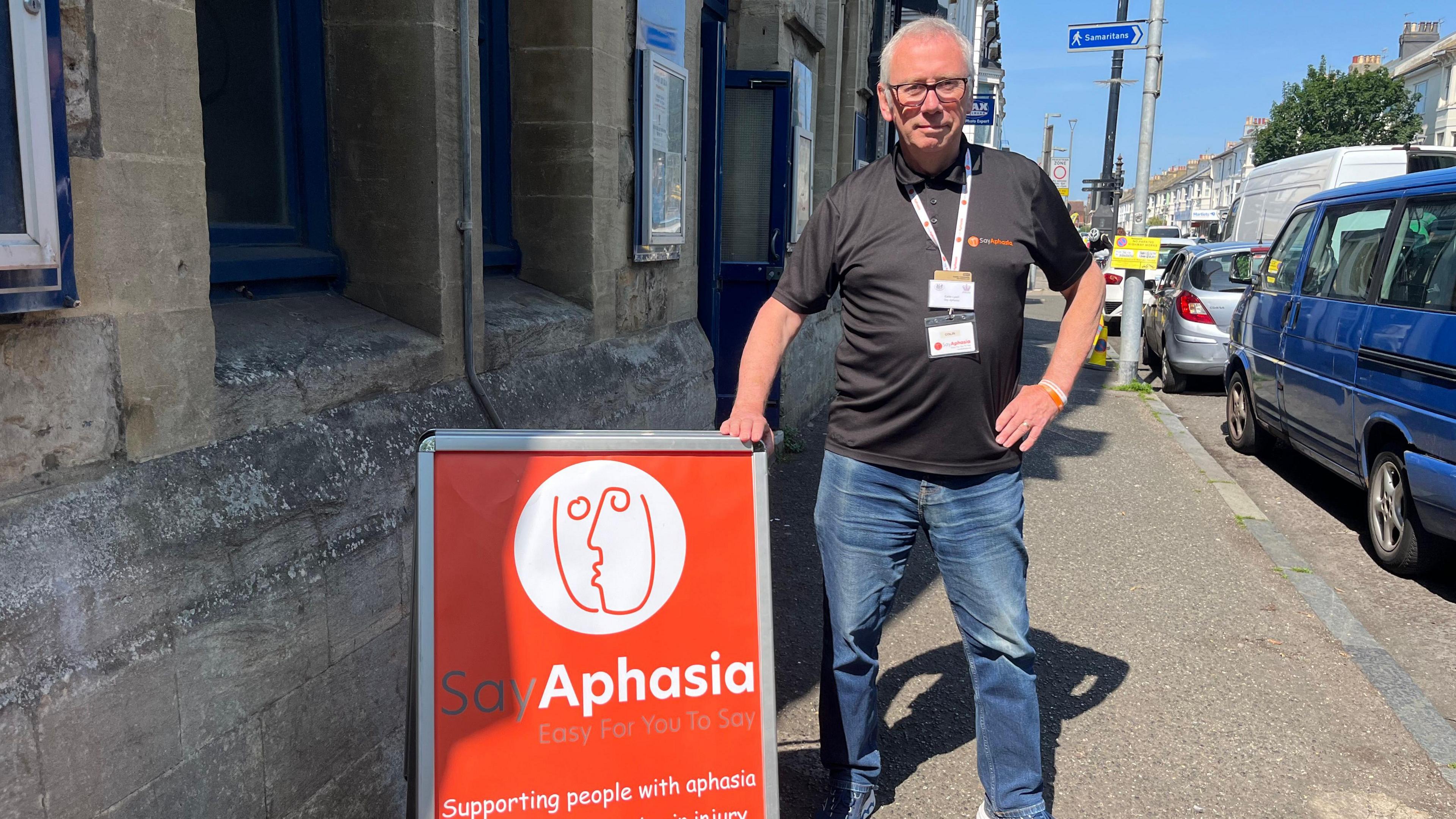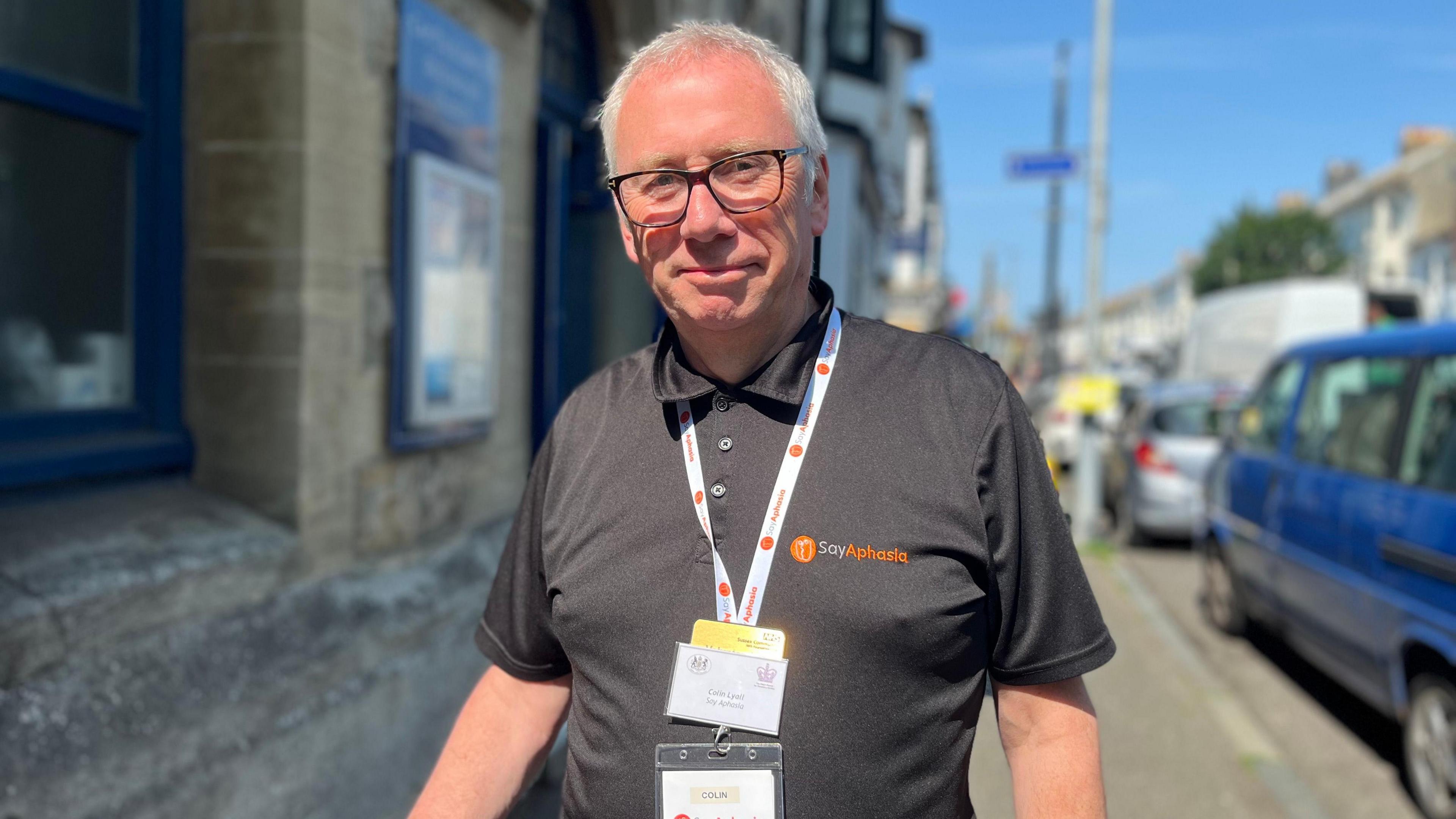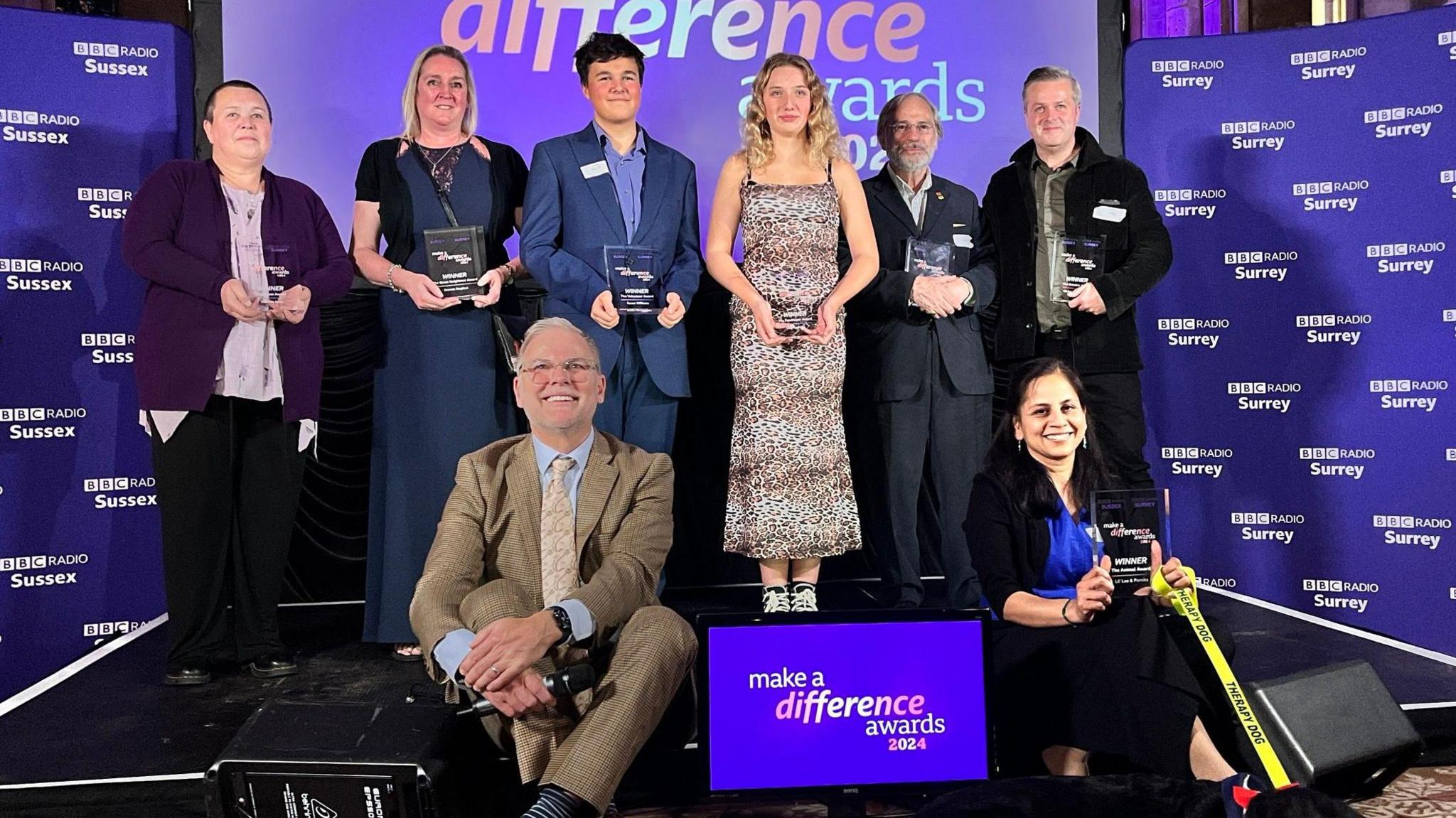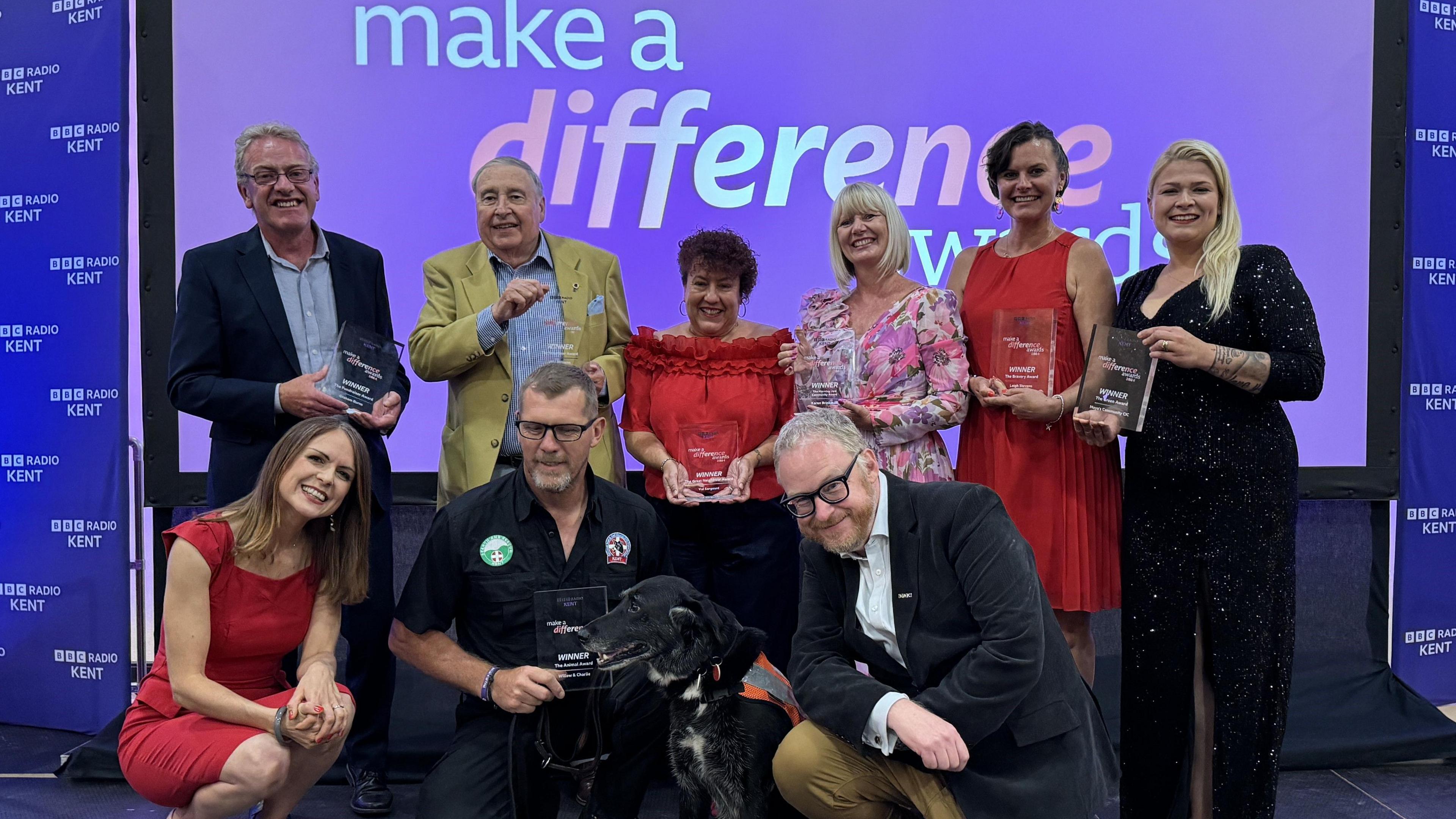Aphasia charity founder nominated for award

Colin Lyall has been nominated for a BBC Make a Difference award
- Published
A man who founded a charity which helps those living with the after effects of a stroke has been nominated for a major community award.
Colin Lyall started Say Aphasia, external in Hove, East Sussex, with the organisation now having 29 branches across the country.
Mr Lyall is a finalist in the Volunteer category of the BBC Radio Sussex and BBC Radio Surrey Make a Difference awards for Sussex and Surrey.
The winners will be announced in a ceremony at Lingfield Park Racecourse on 22 September.
Mr Lyall had a stroke himself in 2013, when he was 50 years old, and said he can no longer read or write.
Aphasia is difficulty communicating, including speaking, reading and writing, which often follows a stroke or brain injury.
"My words in the hospital were 'yes' and 'no', even though my intelligence was still intact," he told BBC Radio Sussex.
"I was very lucky I had speech and language therapy quite quickly, I realised there are a lot of people can take six months to a year to get therapy."

Colin Lyall founded Say Aphasia in Hove
The group helps people through games and socialising, with one volunteer telling BBC Radio Sussex it is "the happiest place to be".
His work has been praised by the Stroke Association, the UK's leading stroke charity.
Associate director for the South East, Nick O'Donohue, said: "It's essential that stroke survivors can access speech and language therapies as soon as possible after their stroke.
"This is when the brain has the greatest ability to reorganize itself and is most responsive to therapy. It can make a huge difference to the quality of someone's life after a stroke."
Follow BBC Sussex on Facebook, external, on X, external, and on Instagram, external. Send your story ideas to southeasttoday@bbc.co.uk , external or WhatsApp us on 08081 002250.
Related topics
- Published1 October 2024

- Published4 September 2024
